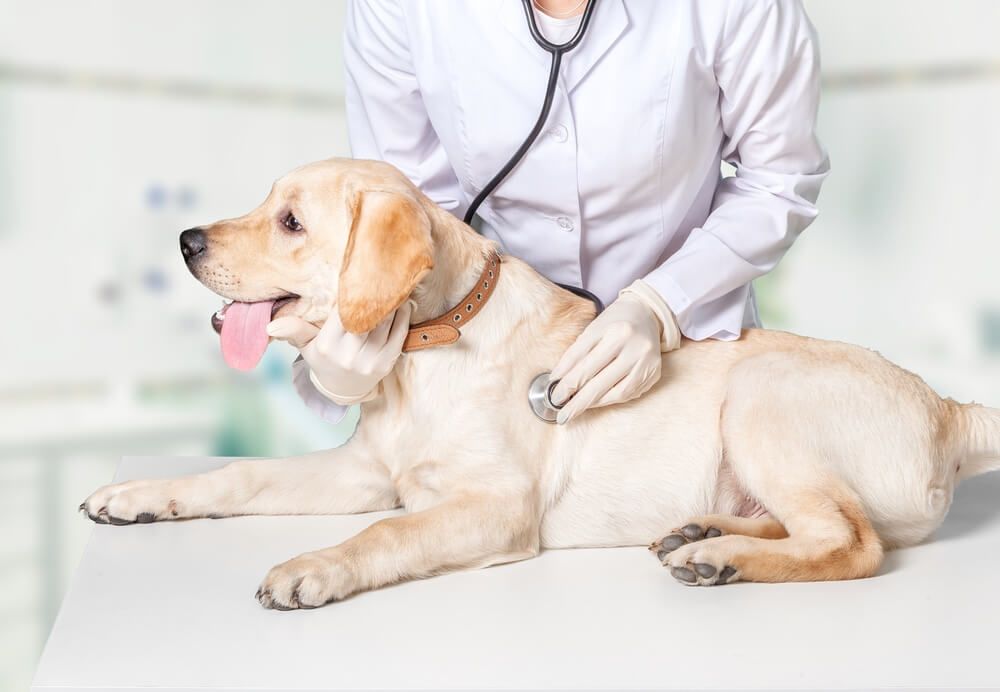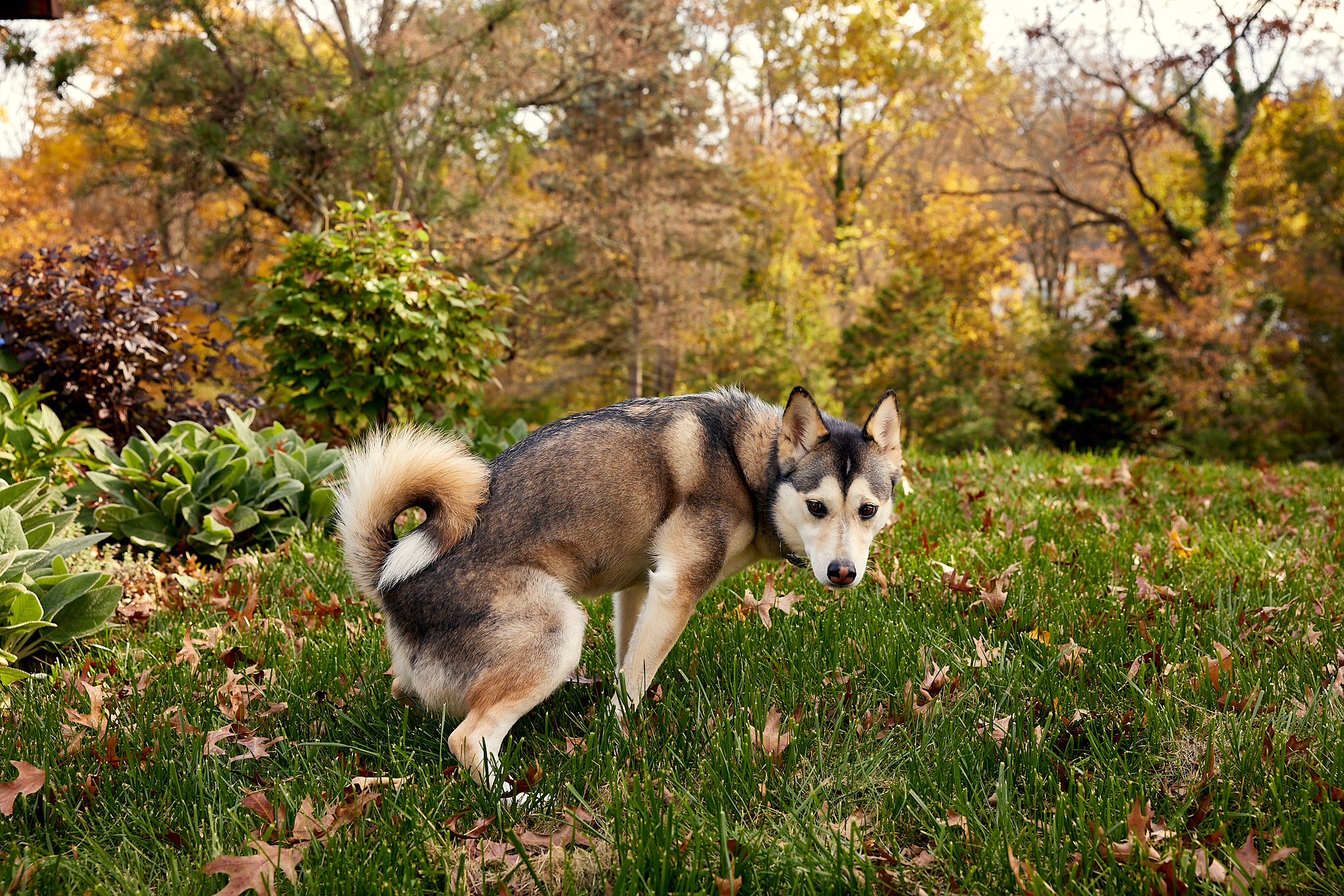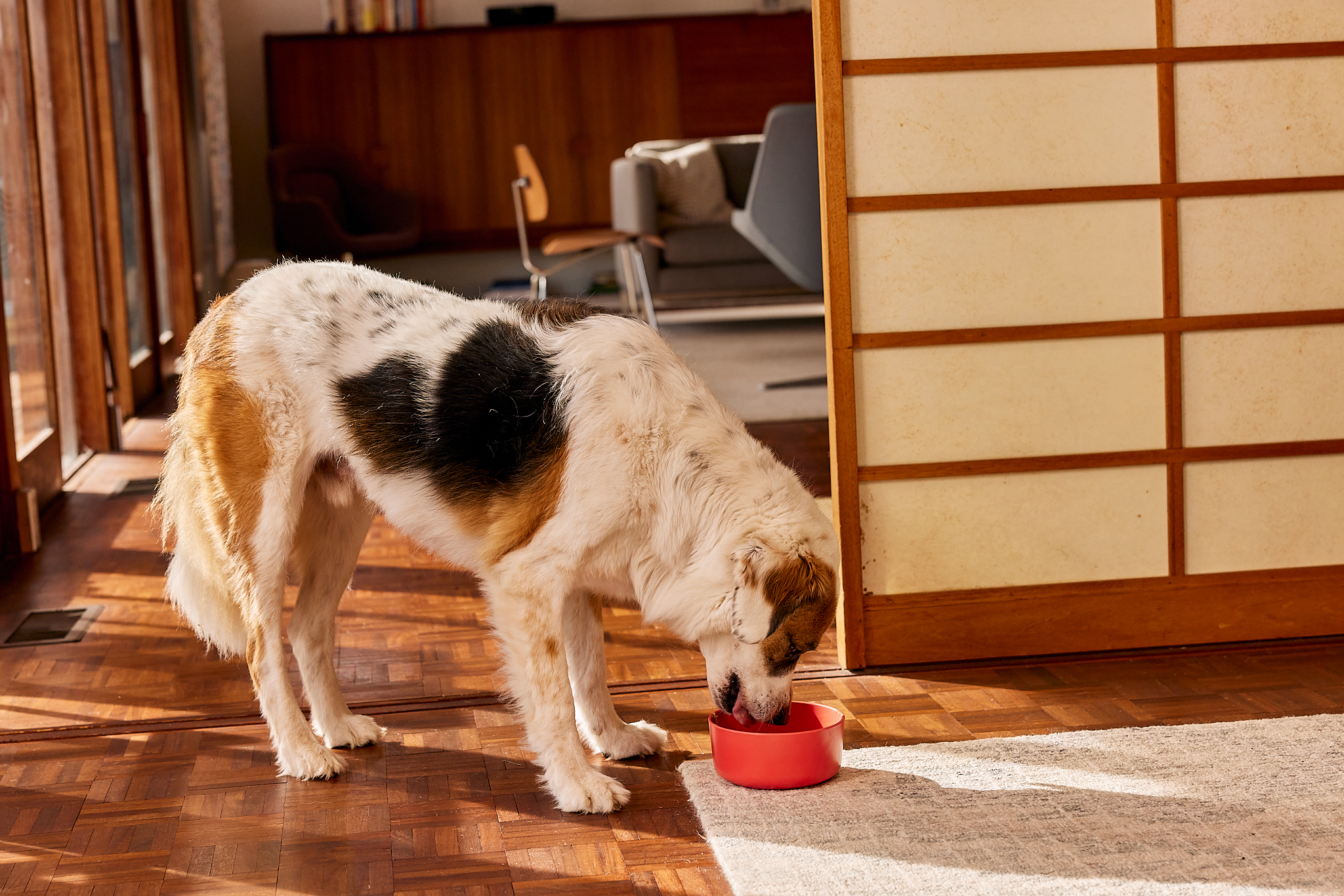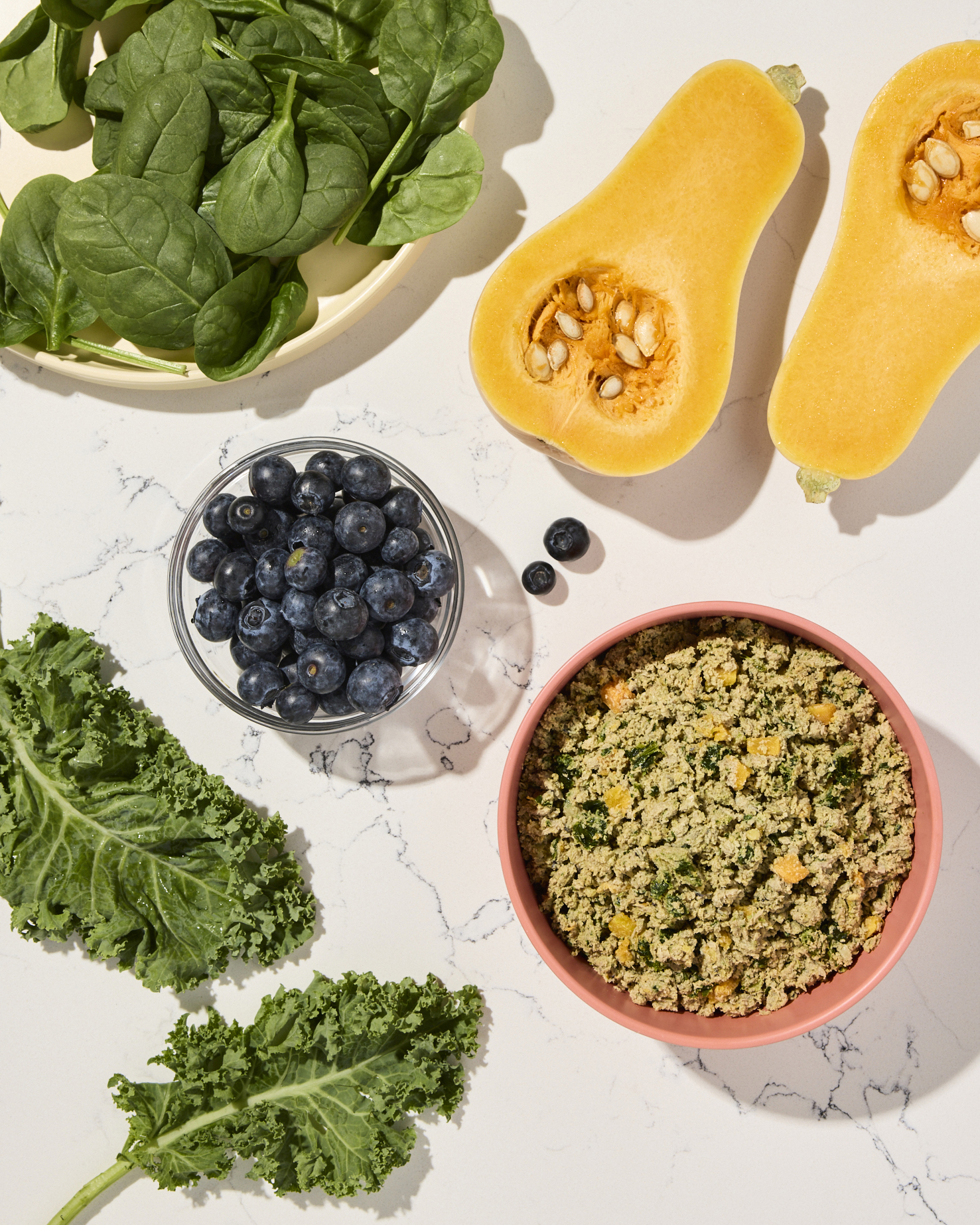Hey Ollie blog readers! We’re offering you an exclusive 60% OFF your starter box! Try now!
As a dog owner, you may have heard about a potential link between grain-free dog foods and heart disease or dilated cardiomyopathy (DCM.) There are many schools of thought about dog food and nutrition, including grain-free diets, raw food, and exotic ingredients. With more and more dog food brands becoming available, consumers have more choices than ever about what they feed their dogs.
At the heart of the grain-free discussion is taurine, a unique amino acid found only in animal tissue, and that plays a vital role in maintaining cardiac function in dogs.
As a pet parent, you might have some concerns about your own pup’s risk for developing DCM and want to do everything you can to keep your pup safe. We understand.
Here we will break down everything we know about taurine, and how you can protect your very best friend.
What is Taurine?
Taurine is an amino acid. Amino acids are the building blocks of protein in your dog’s body. If you remember from biology class, proteins are used throughout the body for nearly every life-supporting function including cell and tissue building and repair, hormone and enzyme production, immune system support, and as a primary energy source. Simply put, taurine is a powerful protein precursor with a lot of responsibilities.
In addition to taurine’s critical role in heart health, it also protects your dog’s vision, supports healthy brain and nervous system function, and helps to maintain a normal fluid and electrolyte balance.
Taurine Deficiency in Dogs
With such important roles throughout the body, it’s not surprising that inadequate taurine levels result in dramatic and varied signs associated with heart, bladder, and vision-related changes such as:
- Exercise intolerance
- Weakness or lethargy
- Coughing
- Appetite loss
- Collapse or fainting
- Bloody urine or painful urination
- Abdominal pain
- Decreased vision or blindness
If your pet is experiencing any of these signs, your veterinarian should test them for taurine deficiency. If your pet’s results are below normal, your veterinarian will likely recommend taurine supplementation.
Effects of Taurine Deficiency
When your dog’s body is taurine-deficient, tissues weaken and physiologic processes are disrupted, resulting in a cascade of health conditions including:
- Heart disease
- Retinal damage
- Urinary issues
- Dilated cardiomyopathy (DCM)
Depending on your dog’s condition, specific treatments may be necessary to reverse or halt the damage to affected tissues and organs. If appropriate, your veterinarian may recommend taurine supplementation and will give you specific instructions on how much to give your dog.
Common Sources of Taurine for Dogs
Your dog’s food is an important taurine source. While some dogs can make taurine, they may be unable to produce an adequate amount to meet their nutritional needs. If this is the case, they must get the rest from their food.
Taurine levels can be boosted simply by adding (or increasing) meat-based protein to your pet’s diet. Any type of meat will do as long as it’s fresh and of good quality (anything you’d be willing to serve on your own dinner table). Organs such as the heart are also high in taurine as well as many other important nutrients. Your pup may find them delicious, which is great news because they help to keep your pup healthy.
What Types of Dog Foods Contain Taurine?
For dog food to contain enough taurine, it needs to contain meat. Foods made with fillers like corn, wheat, soy, or potatoes tend to have less meat, which means less taurine.
At Ollie, we work hard to ensure all of our recipes contain adequate levels of taurine for your pup. We supplement our lamb recipe with additional taurine since lamb is lower in taurine than the other proteins we feature in our recipes (i.e., chicken, beef, and turkey).
How Much Taurine Does Your Dog Need?
If you’re concerned about your dog’s taurine levels, ask your veterinarian to run a blood test. A blood test is the only way to establish your dog’s baseline taurine levels. The acceptable range is 200-350 nanomoles per milliliter (nmol/mL). Dogs with blood-taurine levels below 150 nmol/mL are considered taurine-deficient.
Because dogs vary in how they synthesize, absorb, and metabolize taurine it can be challenging to say how much taurine each dog needs per day. Fortunately, taurine is considered relatively safe—including at high doses—so you can feel comfortable adding a few fresh food sources to your dog’s bowl.
Do All Dogs Need the Same Amount of Taurine?
This is something we aren’t entirely sure about. Recent studies have found a connection between DCM and specific dog breeds, including:
- Golden Retrievers
- Cocker Spaniels
- Newfoundlands
- Saint Bernards
- English Setters
- Irish Wolfhounds
- Portuguese Water Dogs
While research is ongoing, some theories suggest the onset of DCM is related to feeding grain-free diets. However, the question remains whether DCM occurs due to an overall lack of taurine in dog food or other dietary factors that cause problems with taurine digestion, absorption, metabolism, or excretion.
If your pup is among the breeds listed, you should continue to proactively communicate with your vet and keep up to date with the research, including FDA updates.
While the percentage of dogs who develop DCM is still low, for pet parents who lose their pups to this disease it does not matter—it is devastating.
Taurine-Rich Dog Food Recipes
Ollie
Fresh whole food ingredients contain the most bioavailable (i.e., ready-to-use) nutrition for your dog—including taurine. Every Ollie recipe is carefully crafted to deliver not only a complete and balanced meal but to do so using only the most natural sources—ensuring optimal nutrient absorption and utilization to power your pup.
Each Ollie recipe is taurine-rich, featuring human-grade meat as the first ingredient. If you’re looking to increase your dog’s daily intake, we’d especially recommend adding Fresh Turkey with Blueberries and Fresh Beef with Sweet Potatoes recipes to your dog’s meal plan. Both proteins are naturally high in taurine and include organ meat—a valuable source of taurine and essential vitamins and minerals.
Ollie works directly with a veterinary nutritionist to evaluate each recipe to ensure they meet the requirements for a balanced diet for dogs of all ages, breeds, and activity levels. We want to assure you that our food is safe for your dog. If you have any questions about our fresh food diets, our Canine Care team is ready to lend a paw.
If you’re ready to say yes to fresh dog food—and yes to a healthier pup, start building your dog’s customized meal plan.
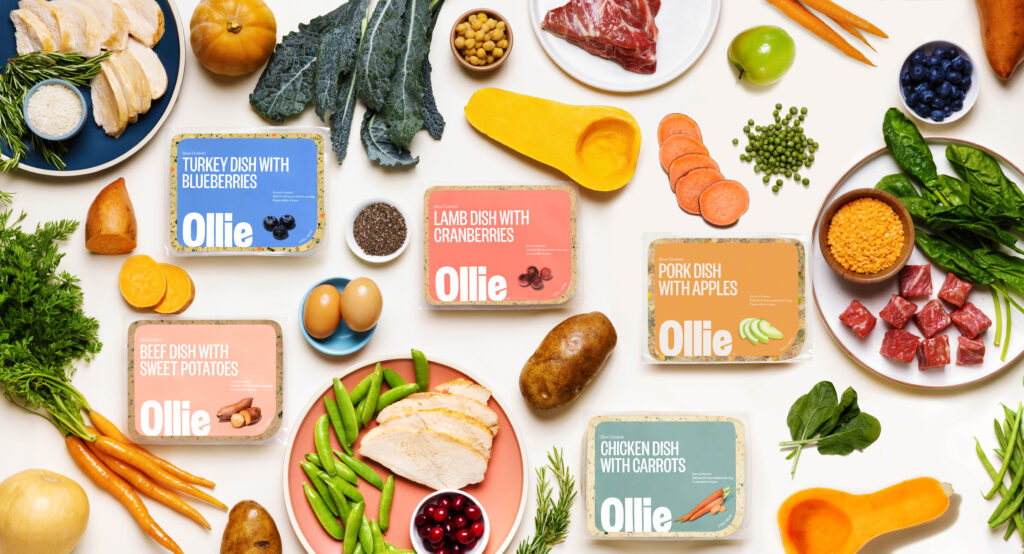
Fish
Fish—including salmon, tuna, whitefish, and cod—are some of the greatest taurine sources, containing an average of 36 milligrams (mg) per raw ounce. Like poultry meat, darker fish typically contain higher taurine concentrations. If you can’t stomach fresh fish, consider adding freeze-dried or dehydrated fish to your dog’s bowl or let your dog chew on a fresh fish skin roll.
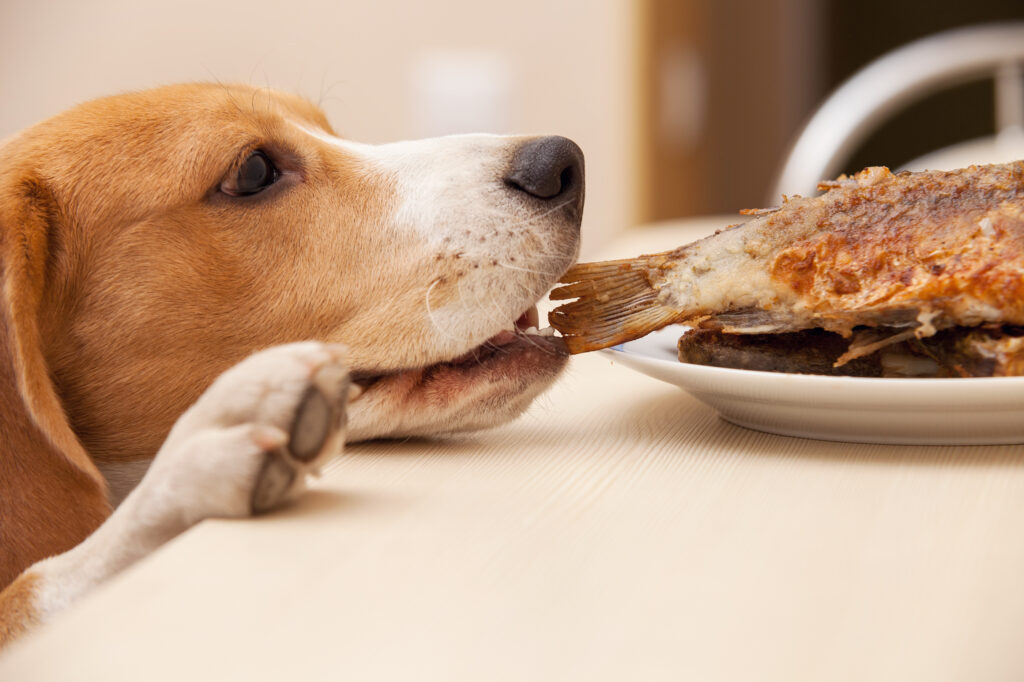
Dark Poultry Meat
Dark poultry meat (e.g., duck and select turkey and chicken portions) comes from the more muscular portions of the bird, which makes it more nutrient-dense. Dark poultry meat is a rich taurine source that also contains high myoglobin (i.e., dietary iron) levels, and numerous important vitamins and minerals.
Raw dark meat turkey contains the highest taurine levels at 306 mg per 100 grams (g). Raw dark meat chicken contains 82.6 mg/100 g.
Organ Meats
Organ meats are considered one of the most nutrient-dense foods. These meats are a phenomenal source of many amino acids—including taurine—and also contain valuable vitamins and minerals that support cellular function. But, use caution when feeding organ meat, including dehydrated treats, as this rich meat is known to cause gastrointestinal (GI) upset.
Chicken liver offers the most taurine at 110 mg/100 g, while beef liver averages 68.8 mg/100g. Beef heart weighs in at 63.2 mg/100g.
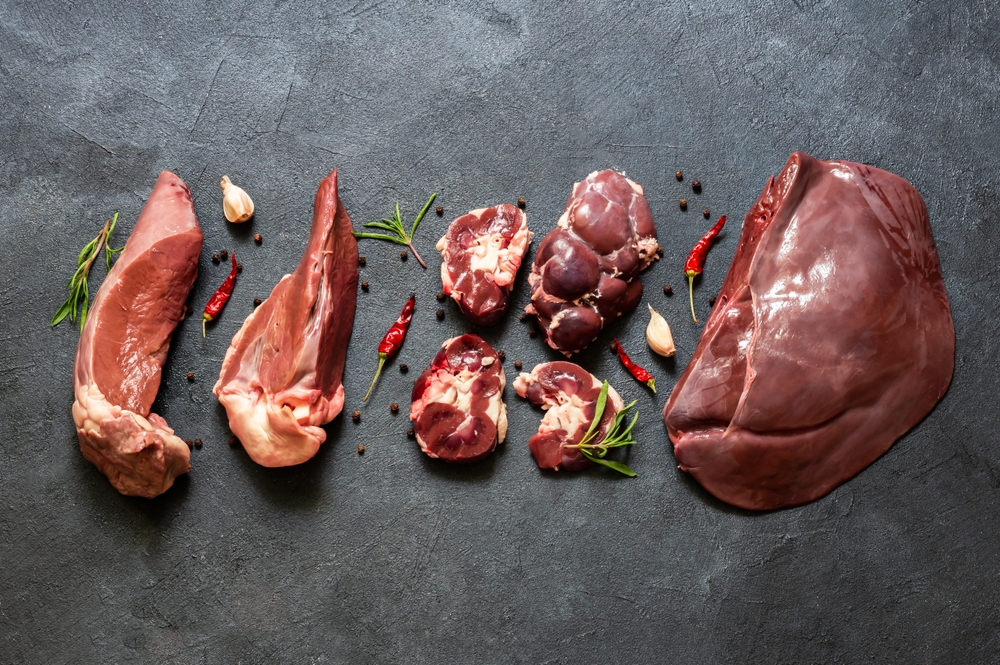
Taurine Supplements
If your dog is at risk of taurine deficiency, supplements can be a convenient way to boost your dog’s levels without cooking or changing their diet. You may wonder about the side effects of taurine supplementation in dogs—although taurine supplementation is considered relatively safe with minimal side effects, GI upset can occur. Always consult your dog’s veterinarian before introducing new supplements or foods to their diet.
The current acceptable taurine dosing guidelines include:
- Small dogs: 500 milligrams per day
- Medium dogs: 1,000 milligrams per day
- Large and giant-breed dogs: 2,000 milligrams per day
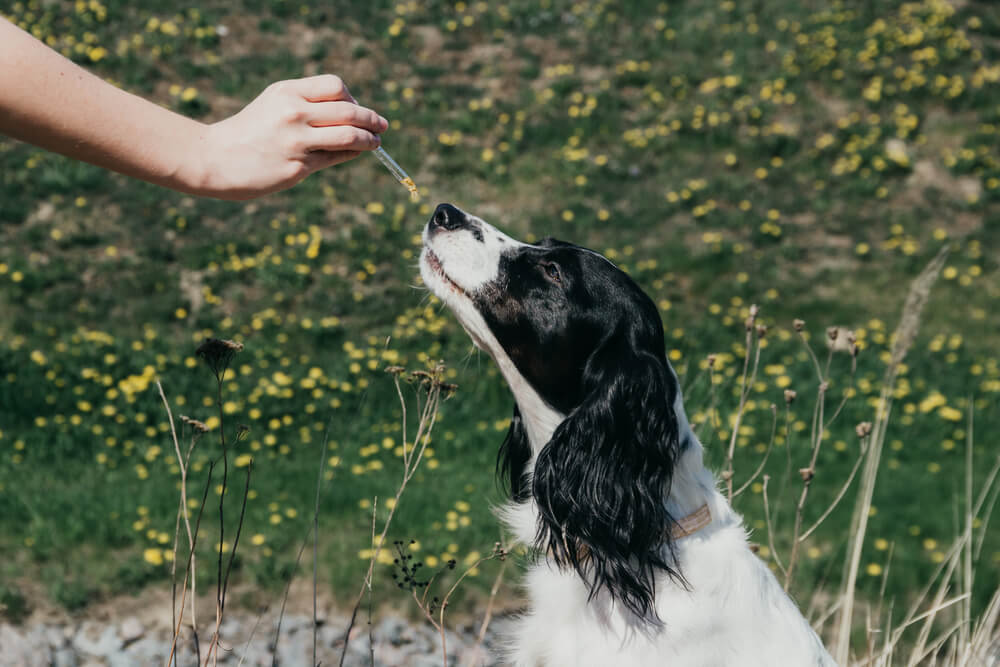
Keep Your Pet Healthy and Happy with Ollie Dog Food
There’s another benefit to feeding Ollie—and this one’s for you. Every time you feed your dog an Ollie meal, you get peace of mind knowing that you’re not simply satisfying their appetite, you’re caring for their health and wellbeing. Our customized meal plans make it easy to ensure your dog always gets the best—explore our recipes and let us help you build your dog’s first delivery.
The Ollie blog is devoted to helping pet parents lead healthier lives with their pups. If you want to learn more about our fresh, human-grade food, check out our custom meal plans.
Sources for taurine concentration in meats:
https://www.vetmed.ucdavis.edu/sites/g/files/dgvnsk491/files/aal/pdfs/spitze.pdf
The Ollie blog is devoted to helping pet parents lead healthier lives with their pups. If you want to learn more about our fresh, human-grade food, check out MyOllie.com.
Tagged As:

The nutrition your dog needs,
the food they want.

Enjoying our articles? Subscribe our Newsletters and get new articles directly to your inbox
You might also like
3 July 2025
5 MINS READ
How Fresh Food Can Help Your Dog Have Perfect Poops
As a pup parent, you’re likely very familiar with your dog’s bathroom habits. While it may not be the most glamorous part of taking care of your pup, a dog’s stool can be one of the most dir…
by Ollie Pets
4 June 2025
5 MINS READ
How Can Fresh Dog Food Help with Weight Management?
Maintaining a healthy weight is one of the most important aspects of your dog’s overall health and longevity. Being overweight or underweight can result in health complications and conditions that…
23 May 2025
5 MINS READ
Why Fresh Dog Food Makes Happier, Healthier Dogs That Live Longer
Every pup parent wants their dog to live a long, happy life, and the path to a healthier, happier dog starts with what’s in their bowl. Recent research and expert insights reveal that fresh dog …
by Ollie Pets
